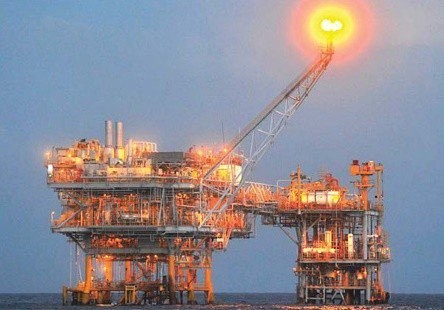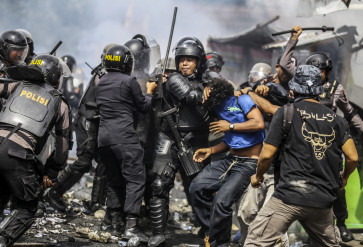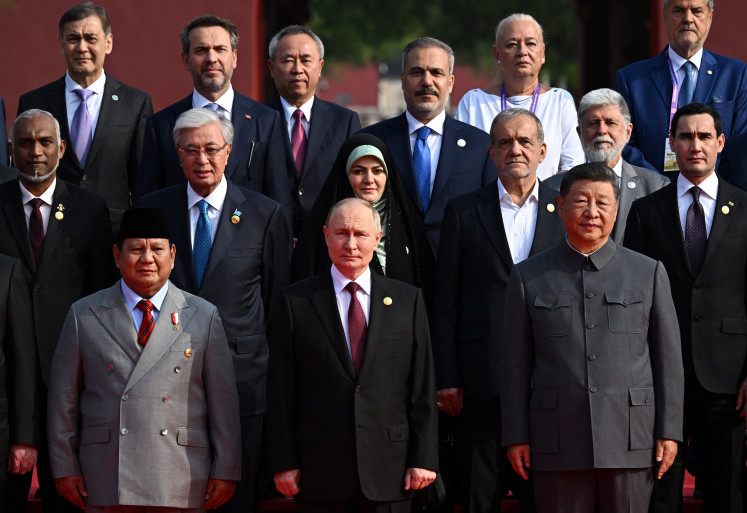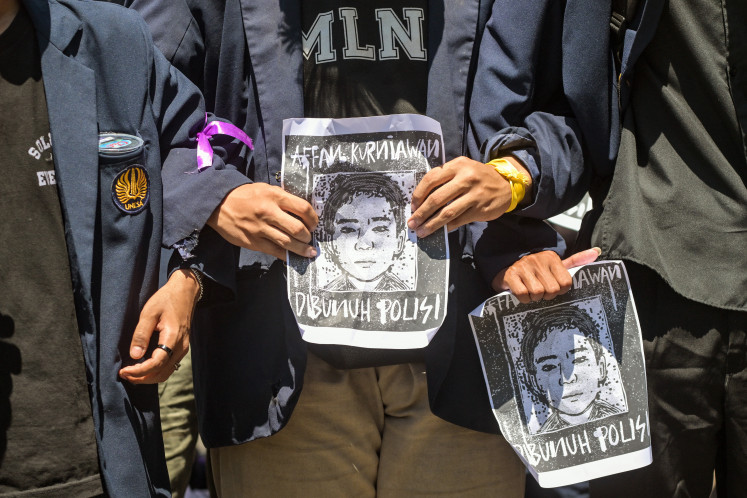Popular Reads
Top Results
Can't find what you're looking for?
View all search resultsPopular Reads
Top Results
Can't find what you're looking for?
View all search resultsGovt scrambles for ways to cut gas prices
Change text size
Gift Premium Articles
to Anyone
A
s the government works to cut gas prices, the deadline is approaching to provide lower prices for 10 industries. The government has stated that it is looking to slash gas prices to around US$6 per million British thermal units (mmbtu) by the end of next month from the current national average of $9 per mmbtu.
The new price will be available for 10 industries and one industrial zone at the beginning of next year, and is expected to help boost production. At present, only seven industries enjoy such a low price.
The President has ordered his Cabinet to come up with a strategy to realize the plan, but no decision has been made until now.
Coordinating Maritime Affairs Minister Luhut Pandjaitan recently suggested importing liquefied natural gas (LNG) for the western part of Indonesia to drastically cut costs.
Luhut, who is also acting energy and mineral resources minister, said imported LNG from neighboring countries, such as Brunei Darussalam and Malaysia, cost between $3 and $4 per mmbtu, while distribution and regasification could cost an additional $4 to $5 per mmbtu.
Experts and industry players seem to agree that this would be an ideal short-term solution for the pressing problem.
Downstream Oil and Gas Regulatory Agency (BPH Migas) chief Andy N. Sommeng said imports were a feasible option as long as the government imported the LNG with a maximum landed price, or price at the upstream business of $4 per mmbtu.
“Considering the current situation, $8 is the lowest price that we can deal with, which is why we definitely need imports. If we import [LNG] with a landed price of $4, it will lower the price for end users,” he said on Wednesday.
The country has never imported LNG, although it imported 1 ton of piped natural gas from Singapore in 2014 worth $3,000, while it still has 17 unallocated cargoes of domestic LNG this year and 30 cargoes for next year. In 2015, only 60 percent of all cargoes for the domestic market were absorbed. The government attributed high gas prices as the cause of low domestic absorption.
Ryad Chairil, energy and mineral resources expert at the University of Indonesia’s (UI) technology department alumni association, agreed that imported LNG could lower costs. He suggested the government subsidize gas prices for select industries as well.
Furthermore, the government could order operators of mature gas fields, such as the Offshore North West Java (ONWJ) field, to lower their prices, to compensate for the high distribution and transmission costs, which inflate the end user’s costs.
“Mature gas fields have already been fully compensated by the government, meaning that they have obtained their investment returns and actually, by law, the government can claim the fields as their own,” he said, adding that it was possible to cut gas prices produced by the mature fields to $3 per mmbtu.
On the contrary, it will be difficult for the government to demand similar price cuts to operators of newer gas fields, as they have not reached a break-even point.
However, cutting gas prices also has its downsides.
According to a price cut simulation carried out by the Energy and Mineral Resources Ministry and Upstream Oil and Gas Regulatory Special Task Force (SKKMigas) last week, non-tax revenues from gas can drop by $300.1 million if the gas price becomes $5 per mmbtu and can drop even further by $474.9 million if the price reaches $4 per mmbtu.
BPH Migas’ Andy said the lower revenue would not be a problem as long as the government was serious about transforming natural gas’ role into an economic prime mover from a revenue maker.
“As long as we rely on it for revenue, it cannot be categorized as a prime mover, but it remains a commodity,” he said.
________________________
To receive comprehensive and earlier access to The Jakarta Post print edition, please subscribe to our epaper through iOS' iTunes, Android's Google Play, Blackberry World or Microsoft's Windows Store. Subscription includes free daily editions of The Nation, The Star Malaysia, the Philippine Daily Inquirer and Asia News.
For print subscription, please contact our call center at (+6221) 5360014 or subscription@thejakartapost.com










